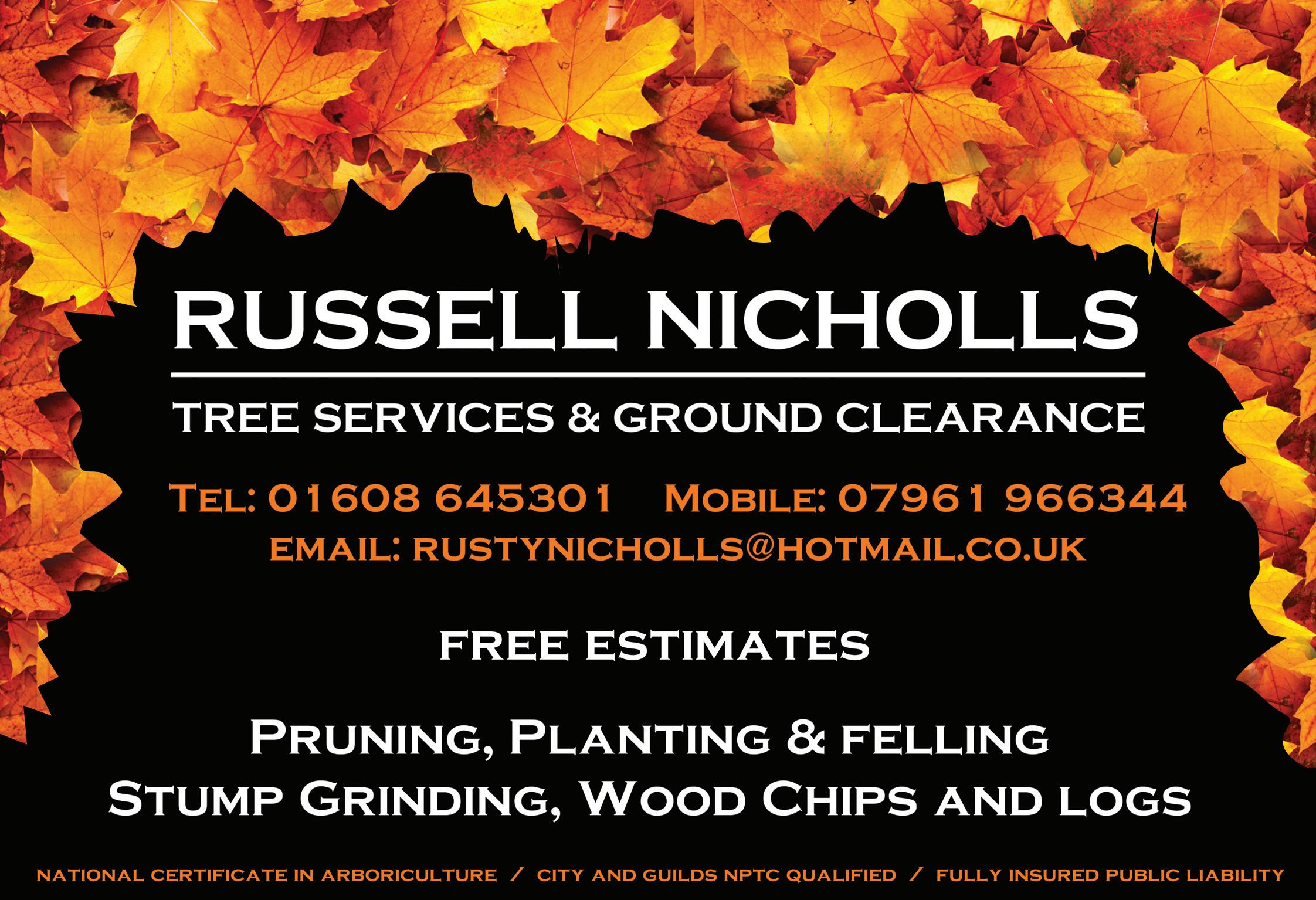
14 minute read
Garden View
Tools of the Trade
The right tools make gardening easier, and in my opinion you should buy the best you can afford then look after them so they will last many years. But which tools are essential?
Advertisement
Gloves - Gardening is hard on the hands. Weeds, roots and digging are brutal on the skin. Buy a thick, good quality multi-purpose pair to begin with. Make sure they fit. My first pair were too large and cumbersome. I was so naive I didn’t realise they came in different sizes...much like gardens...and gardeners! Secateurs - The task of pruning comes around with alarming regularity, so a good pair of secateurs is one of the most used items in my garden tool kit. Find a pair that feel good to hold, are wellbalanced and easy to operate with one hand. Keep them clean and sharp and they will serve you well for many seasons. Trowel - Useful for hand weeding, dividing smaller plants, planting, potting on, and seed sowing. Hand Fork – A hand fork is essential for breaking up compacted soil. Sometimes it’s easier to use than a trowel and is less likely to damage roots in more densely planted areas or when separating smaller plants. I like a comfort handle for my hand tools but make sure to choose tools where the shaft of the handle and trowel (or fork) are one unit, not welded or rivetted together, as they are not as strong and snap with repeated use. I choose stainless-steel tools because they are rust resistant.
Watering can - A large watering can is great, but very heavy when full so if you have arthritis or not much upper body strength choose a smaller watering can that you can handle easily and make a few more trips to the tap. A rose allows for a gentle sprinkler effect on tiny seeds and seedlings. You can use a hose if you garden a larger area. Choose a multitasking one with misting and sprinkler attachments Spade –You can’t dig large areas without one. As with hand tools, I prefer stainless steel. Keep it clean, with a sharp edge for digging, planting, and edging beds. Choose one that feels right for your height. Fork - A stainless-steel fork is great for stony soil, and for breaking up compacted earth. It’s also good for lifting shrubs without damaging the root system too much.
Dutch Hoe - Weeding is a necessary task (and a somewhat relentless one during the growing season). The Dutch hoe has a shallow angled blade with a front cutting edge for keeping weeds down between seedlings and established shrubs and plants. Ground rake -. Use this for breaking down the soil to that fine tilth gardening books go on about. Use the wide head and teeth to open and level the top surface of the soil, then use the back of the rake to firm it down. It makes seedsowing easier and more likely to produce healthy seedlings.
Perform a Spring Clean
Once you have your gardening tools ready to get to work, it’s time to go outdoors for a spring inspection.
Winter, freezing temperatures, and everything related to the cold season can leave a mess in your garden. So, you need to get out and assess damage from winter to see how much work you need to get done for your garden to look in good shape.
What should you be looking for?
Start by answering the following questions: Are there any hardscaping elements, such as the walls, fences, benches, etc., that have been damaged or broken during the cold season? Is there any cold, ice, or snow damage on the plants in your garden? Are there any beds that you’ll need to clean out?
Is there any evidence of animal burrows from animals like skunks, chipmunks, moles, or rabbits?
Is there any deer damage on the woody plants in your garden?





The Cotswold Sky

Captivate The Children, Show Them A Space Craft Launch
The use of computer technology in the form of education as turned the world upside down, but there is more to education than passing examinations. We need our children to be more broadly educated whether it be by looking at nature, becoming interested in the arts of music and craft or as in this article expanding our knowledge on what other events are taking place on planet Earth and outer space. The information on how to watch a live space launch is available on the internet. Once seen it may ignite that spark of enthusiasm in a future hobby or even a career in space flight, astronomy or satellite communication. Information can be obtained from the following sites to mention but three: www.nasa.gov/nasalive www.spaceflightnow.com www.space.com/space-calendar. html
Good Luck, I trust that viewing a launch will bring some joy to many youngsters who find it difficult to occupy their minds with something of interest.
DIARY
Vernal (Spring) Equinox occurs at 09.37 on Saturday 20th March. This is when the Sun crosses the equator on its journey towards the Northern Hemisphere. On this day there are affectively 12 hours of light and 12 hours of darkness almost everywhere on Earth. British Summer Time occurs on Sunday 28th March – Don’t forget to put your clocks forward by 1 hour. Super Moon The full Moon on the evening of Monday 26th of April is known as the Full Pink Moon. Well worth showing the children. Mercury Difficult to spot during the month of March and the first few weeks of April. May be seen at the end of April in the evening sky to the right of a setting Sun. Venus Not observable during the months of March and April. Mars The most observable of the planets during this 2 month period but its brightness is beginning to fade. Look high in the south west at around 19.00 hours at beginning of March and watch it over the weeks move further westwards. On Saturday 17th
April at around 21.00 hours, it will be seen very close to a crescent Moon.
Jupiter and Saturn Following their historical encounter during the month of December both Jupiter and Saturn will now appear in the early morning dawn. You may catch a glimpse of first Saturn rising followed by Jupiter from the second week in March if you look towards the south east.
John Harris


A Good Read
The Girl with the Dragon Tattoo by Stieg Larsson
First published in English just over a decade ago this Swedish thriller – the first of a trilogy – was a huge hit. It was a time when Nordic Noir was just starting to take off in this country and remains a classic of the genre. So I was interested to see if it stood up to a re-read 12 years later, and it certainly does.
Mikael Blomkvist is an investigative journalist but a recent article about the wealthy Swedish financier Wennerstrom has landed him with a two month prison sentence for libel. But while waiting for his sentence to begin Blomkvist receives an unusual job offer from millionaire industrialist Henrik Vanger. He wants Blomkvist to investigate the murder of his great-niece, Harriet, forty years earlier. He takes the job, moving to the island where the Vangers live. He ends up turning to computer hacker Lisbeth Slanader for help, a young woman who has no tolerance for others, society, or the law.
What appears to be a simple thriller on the surface offers so much more. From corruption in Swedish society to attitudes towards women in Sweden, this evocative novel is satisfying, if violent. As a reader you feel part of the action as you move with the characters from Sweden to Hebdy Island. Here, more than in many other novels, the geography of Sweden feels like a character in its own right and the mood of the characters and the pace itself cleverly switches as we move from one to the other. For me this was the most satisfying part of this exemplar of the Nordic Noir genre.
The Werepuppy by Jacqueline Wilson
Mickey has four sisters, and three of them are older than him. He doesn’t get on with them and is frequently teased. Then on night his parents go out, leaving the three older girls, Meryl, Mandy, and Mona, in charge. Delighted to have the house to themselves the girls decide to watch Savage Snarl a scary werewolf movie. And it really IS scary. Even the older girls think so.
But for Mickey it has a lasting effect: he becomes scared of dogs. Unsure what to do, his mum decides that the only real solution is to buy Mickey a puppy of his own! Dragged to the dog rescue home Mickey would rather be anywhere else until he encounters one puppy who bites his younger sister’s finger. Could this be Mickey’s very own werewolf – or werepuppy!
Wolfie, as he is called, is no ordinary puppy and turns out to be the best pet that any boy could ask for!
By Willow Coby
We have been in lockdowns and received more than our fair share of stress and perhaps still wondering and worrying how to get away from the present problems that may be submerging us into another crisis. Here are 10 positive tasks we can do:
1 Watch something funny – Laughter is the best medicine that relieves physical tension, reduces stress. So, turn on and enjoy your favourite comedy.
2 Stop Multitasking – It is said that Napoleon would never multitask he always concentrated on problem at one time not allowing any outside interference. In modern day parlance do not text or speak on the phone while watching the tv. Discipline yourself by taking one task at a time. Multitasking increases the production of stress hormones (cortisol and adrenaline) 3 Get a Colouring Book – Colouring helps you chill out because it is very difficult to focus on other tasks when you are doing it.
4 Have a banana - When we’re stressed out our blood pressure tends to rise but the potassium found in bananas can help to regulate this. Stress can also leave us feeling drained, but bananas give you a replenishing energy boost that will get you swinging from the trees again!
5 A spoonful of honey - Mother nature’s delicious treat has compounds that reduce inflammation in the brain which can help improve a low mood. Bee happy… (sorry, couldn’t resist).
6 Listen to Music, Sing and Dance - Music can help build self-esteem, lift your mood and reduce anxiety.
7 Watch a nature documentary - Not only are David Attenborough’s dulcet tones particularly soothing, but nature documentaries can also sprinkle our minds with mood-lifting wanderlust and highlight the sheer scale of life which can in turn help us gain perspective of our own lives.
8 Breathe ‘Pranayama’ style - This yoga method requires you to breathe through one nostril at a time (inhale through the left by blocking the right, exhale through the right by blocking the left, repeat for 3 minutes) to relieve stress. Weird but wonderful!
9 Drink hot water - Learn from the tradition of Chinese healing and drink a cup of good, clean hot water. It may not be as delicious as a hot chocolate, but it will cleanse your system of toxins that have accumulated in the body and may be causing tension.
1 0 Support someone else - Moving your attention outside yourself can help take the pressure of the stresses in your own life and supporting others can also give you valuable insight for how to redress your issues. Seeing the impact, you make in that person’s life will also boost your self-esteem which in turn, can help de-stress.
Many more ideas can be found by looking at: www.ditchthelabel.org/101-ultimate-ways-chill-reduce-stress/
John Harris



There are thousands of reasons to advertise with us...Winchcombe
Blockley
Copy: 7th April Dist: w/c 3rd May
Bourton-on-the-Hill
Moretonin-Marsh
Longborough Little Compton Evenlode
Condicote Great Rollright Little Rollright Over Norton
OddingtonBroadwell Stow-onthe-Wold
Chipping Norton
Cornwell Heythrop
Lidstone
Copy: 7th April Dist: w/c 3rd May
1/8 Page
from only £70!
Whittington
Dowdeswell Andoversford
Shipton
north Cotswolds 16,600
homes & businesses
Compton Abdale Withington
Chedworth Naunton Upper Slaughter Icomb
Lower Slaughter Wyck Rissington
Notgrove
Bourton-onthe-Water Little Rissington
Clapton-on-the-Hill Turkdean
Great Rissington
Northleach
Great Barrington ChurchillKingham Sarsden
Dean Bledington Chadlington Taston Charlbu Chilson Shorthampton Greenend SpelsburyChurch Westcote Nether Westcote Idbury FifieldMilton-underShipton-underWychwood Ascott-underry Wychwood Wychwood Fawler Finstock Langley Ramsden Taynton Fulbrook Leafield Eastington Little Barrington Windrush Burford Swinbrook Asthall Leigh Crawley Hailey
West Oxfordshire 19,600
homes & businesses
Coln St Dennis
Aldsworth Bradwell Village Asthall Minster Lovell
Shilton
Brize Norton Carterton
Witney
Christine
01609 777401 07742 595747 christine@jkanorth.com www.cotswoldlink.co.uk
Index
Bathrooms
Country Bathrooms: p6
Blinds
Associated Blinds: p16
Builders & Contractors
Country Roofing & Building Contractors: p15 CSG Maintenance: p7 Garolla Garage Doors: p15 Hopper Roofing Services: p4 JA Shirley Building Services: p15 Oak Mill: p7 S W Building: p11
Children’s Services
Cotswold Tutor: p13
Chimney Services
Cotswold Stoves & Chimneys: p7
Cleaning Services
The Laundry: p3
Education
Cotswold Tutor: p13
Electrical Services
Mayday Aerials: p15 S Turner Electrical Services: p7
Furniture
Amanda Hanley By Design: p1 Bob Dadge Carpentry: p4 MRK Services: p5
Garage Doors
Garolla Garage Doors: p15
Gardening & Outdoors
CSG Maintenance: p7 Luke Dadge Drystone Walling: p11 Stockwell Davies Tree Contractors: p11 Tom Negus Tree Care: p12
Glass
CN Glass: p1
Healthcare & Wellbeing
David Brookes Foot Health: p Footworx Clinic: p13
Home & Interiors
Amanda Hanley By Design: p1 Associated Blinds: p16 Bob Dadge Carpentry: p4 Country Bathrooms: p6
Kitchens & Bathrooms
Country Bathrooms: p
Legal
Honey Legal: p3
Laundry
The Laundry: p3
Piano Tuition
Diyana Piano Studio: p13
Plumbing
I. D Godden: p6 Gas & Oil Heating: p4
Property Maintenance
CN Glass: p1 Cotswold Stoves & Chimneys: p7 Country Roofing & Building Contractors: p15 CSG Maintenance: p7 Garolla Garage Doors: p15 Hopper Roofing Services: p4 I. D Godden: p6 JA Shirley Building Services: p15
Recruitment
Geoff & Diana Page: p3
Sound & Vision
Mayday Aerials: p15
Sport & Leisure
Cotswold Archery: p8
Tree Surgery
Russell Nichol Tree Services: p11 Stockwell Davies Tree Contractors: p11 Tom Negus Tree Care: p12
Tuition
Cotswold Tutor: p13 Diyana Piano Studio: p13
Vets
Vet On The Net: p9
Shakespeare Week March 15th – 21st
Has your teenager lamented ‘WHY do we have to study Shakespeare? It’s BORING! Perhaps that was also how you felt when you were in school? In a world of amazing modern writers why do we still teach Shakespeare?
Rich language - Shakespeare loved language and played with it, subverting it, changing nouns into verbs, verbs into adjectives, and connecting words never previously used together, adding prefixes and suffixes, and even inventing completely new words. Scholars estimate that Shakespeare invented at least 1700 of our common modern words. Phrases from his plays have been repeated so often we don’t even realise they are Shakespearean in origin: ‘heart of gold’, ‘wild goose chase’, ‘love is blind’. Our language would be poorer if not for the bard. Few other writers have ever matched the beauty of Shakespeare’s language. His soliloquies and monologues are some of the most eloquent every written.

Complex characters - Shakespeare understood people. His heroes were not cardboard cut outs, but nuanced human beings, capable of the full range of emotions. He also wrote great parts for women (though they would most likely have been played by men in his time). Themes – Shakespeare’s themes as relevant today as they’ve ever been: love, loss, treachery, honour, tenderness, anger, despair, jealousy, contempt, fear, courage, and wonder. He questions morality, politics, war, wealth, and death.
To read and understand Shakespeare takes effort. If students can engage with the rich, dense language and syntax of Shakespeare, they can handle other demanding study situations. It sharpens their brains for other modern languages but also the languages of science and maths. Shakespeare may not be the ‘be-all and end-all’ (that’s one of his) but I hope he continues to be read in schools ‘forever and a day’. Kate McCarthy







